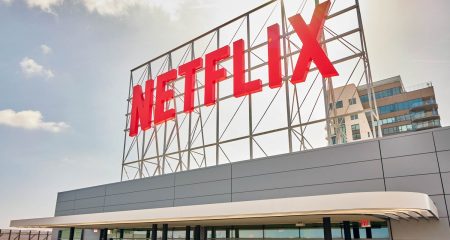 Get ready for the great South African video-on-demand (VOD) cull. I have no figures to back this up, but my gut tells me that most of the local offerings are doomed. Services like Vidi, MaxVU and ONTAPtv.com made a go at it, but their reliance on rental models go against the grain. Perhaps they chose to mimic DStv BoxOffice, which uses a similar pay-per-view model, but it’s a step down from the VOD gold standard, Netflix.
Get ready for the great South African video-on-demand (VOD) cull. I have no figures to back this up, but my gut tells me that most of the local offerings are doomed. Services like Vidi, MaxVU and ONTAPtv.com made a go at it, but their reliance on rental models go against the grain. Perhaps they chose to mimic DStv BoxOffice, which uses a similar pay-per-view model, but it’s a step down from the VOD gold standard, Netflix.
Among themselves, these services may have carved out a new market. But the sudden arrival of Netflix in January put an end to that. They lack the deep pockets to really make a fight of it.
The exception, however, is ShowMax. It smartly copied the Netflix model, then went about securing some big titles. Having HBO, AMC and Showtime on board are big pluses, and it has plenty of local content, too. Beyond that, ShowMax is part of Naspers, a company with the cash resources needed.
But will this be enough to fend off Netflix?
I exchanged several e-mails with a ShowMax spokesman, who pointed out that there is a lot of market share to be had. That is true, but the Internet has made it very hard to compete against international companies. There is no local competition for Google search, Uber or Zomato — at least nothing commanding as much visibility. (The exception is the crowd of mobile payment services like SnapScan, but they may have had more opportunity due to the nature of sovereign financial laws.)
No such laws inhibit Netflix. As long as it has the content licences, it can ply its trade in South Africa.
This leaves me a little worried: much as I like having the next big thing in entertainment, it’s not in our interest to have only overseas companies serving us. It took less than an hour for ShowMax to get back to me, but nearly a week later and Netflix still hasn’t responded to my questions. They want our money, but do they care about us? Not really.
There is no clarity from Netflix on its plans to support local content, nor whether it has any intention of establishing a physical presence here. The only reason we know Netflix is in South Africa is because it works when you visit its website.
But I’m not here to beat on Netflix. I like the service and welcome its arrival to our shores. Yet I also hope the local competition can rise to meet what is a very real challenge.
So far, ShowMax appears to be the only one in a strong position to be able to do that.
My biggest gripe with ShowMax is its lack of standard definition (SD) streams. Sure, we all want sparkling high definition, but it is ruinous on your data. If you break down the Internet demographics of our country, mobile data is far ahead of the rest: it constitutes several million users, while ADSL accounts for about a million and fibre maybe a tiny fraction of that.
That means the majority of the market does not have access to cheap data or uncapped services. If you are on a 10GB package, which is still considered very generous by local mobile standards, you’ll manage a few episodes of Game of Thrones before calling it quits for the month.

Netflix’s cheapest package is SD only, so I asked ShowMax why it isn’t doing the same. It replied that it didn’t want to confuse customers with too many options. That sounds like a canned answer, but it does raise a different point: you can download content to its app and that lets you select the quality.
Here’s where it gets interesting: ShowMax offers vouchers to use the service, so there’s no need for a credit card. It claims a large percentage of its users rely on the vouchers (it hasn’t revealed the numbers) and that many of these users tap free public Wi-Fi to download movies and shows for later viewing.
I have to concede that is an interesting model. The logic dovetails with the kind of bootstrap Internet use that South Africa is developing. For the majority of people, fixed lines are simply out of reach. In cities such as Cape Town and Pretoria, where free public Wi-Fi is gaining traction, the ShowMax voucher-and-download approach could engage a big audience.
You can nitpick at ShowMax’s design or its content, but that will change and grow. The company confirmed that it is planning to add support for Google’s Chromecast and Apple’s AirPlay. Technology evolves.
But evolution requires investment, and ShowMax is unlikely to show a profit any time soon. This means its future hinges on Naspers’s willingness to bankroll it for years.
There is also the slight hope that the other VOD services will rise to the challenge – and, who knows, perhaps digital rentals will prove hugely successful. But Netflix has raised the weight class: this is no longer a start-up environment.
One hopes Netflix won’t suck all the oxygen out of the room. The last thing we need is for South Africa to turn into a one-horse VOD town.




